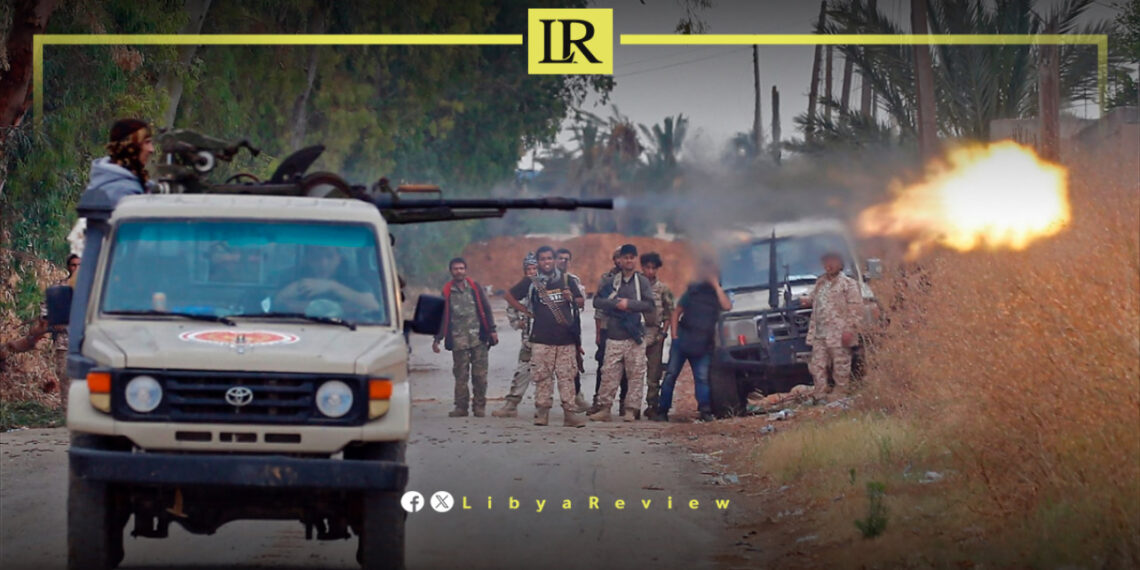Heavy clashes broke out on Thursday evening along the crucial coastal road connecting Tripoli and Zawiya, near Gate 27, a known flashpoint for militia activity.
The violence erupted between two rival armed groups, intensifying tensions in the already volatile region of western Libya.
Eyewitnesses reported that the fighting involved forces from the 52nd Infantry Brigade, led by Mahmoud bin Rajab, under the Western Coastal Military Zone headed by Salah Al-Namroush, and the 55th Infantry Brigade, commanded by Muammar Al-Dhawi. The conflict was sparked when bin Rajab’s forces attempted to seize a military camp controlled by Al-Dhawi’s brigade near Gate 27.
According to press reports, the forces under bin Rajab made a strategic move to take over the camp, which escalated the confrontation. In response, a large contingent of the 55th Infantry Brigade gathered near a power station west of Tripoli, preparing for a potential escalation in the conflict.
The coastal road between Tripoli and Zawiya is a key strategic route, frequently contested by various militias seeking to assert control. Despite ongoing peace efforts, western Libya remains plagued by violent power struggles, with rival factions jockeying for influence over critical infrastructure and territory.
The renewed violence along the coastal road raises serious concerns about the stability of Tripoli and the surrounding areas. The road is a critical transportation artery, connecting major cities and serving as a lifeline for commerce and movement of civilians. Any prolonged fighting could disrupt the flow of goods, services, and people, further straining the already fragile situation in the region.
Moreover, these clashes highlight the ongoing challenges faced by the Government of National Unity (GNU) in Tripoli, which continues to struggle with uniting the country’s various militias and security forces under a single command. The failure to prevent such confrontations underscores the deep-rooted divisions that persist despite international efforts to stabilize Libya.
With national elections on the horizon, the timing of these clashes is particularly concerning. Escalating violence could derail efforts to hold peaceful elections, deepen political divides, and lead to further unrest in other parts of the country. International actors and Libyan authorities will be closely monitoring the situation, as continued instability could have wider repercussions for the region.


